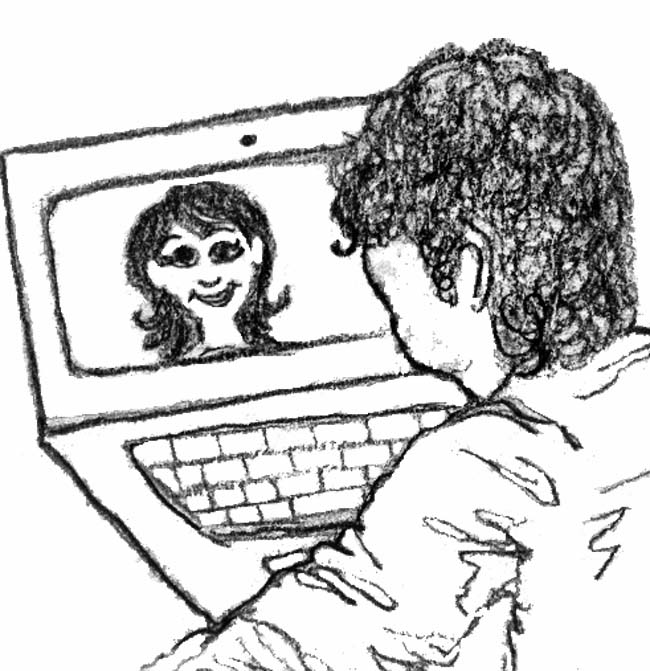In our bustling society where free time is scarce, online services cater to our need for flexibility, allowing us to do things at our convenience (like watching a show on Hulu in bed at 2 a.m.). Websites and apps connect us to a plethora of resources from nearly anywhere with Internet access, as long as we have a smartphone, laptop or tablet in tow.
Despite the freedom and accessibility virtual means afford, certain things seem so personal and important that they should be done face-to-face if at all possible. Wellness — physical and mental — is one of these cases.
At the University of Florida last semester, 26 students participated in an online program called Therapist Assisted Online, a series of modules designed to aid students afflicted with anxiety. The seven-week program was almost exclusively virtual, although it did include a weekly 10-15 minute video consultation with a therapist. The results were quite positive — TAO students even reported a higher level of progress than those who were in traditional (in-person) individual therapy.
While these results are encouraging for the potential of online counseling, I can’t help feeling that in-person therapy is still the preferable alternative. Mental health — like physical health — is such a personal aspect of our wellness that it deserves individualized care. Two people who are diagnosed with the same mental health condition could be affected by it in significantly different and nuanced ways. Similarly, people recover and heal in different ways and in their own time; there cannot be a one-size-fits-all approach. No matter how advanced the technology, I struggle to believe any module would be as perceptive, thoughtful and empathic as a well-trained human being who is physically present and listening to you.
In an ideal world, everyone would have the option of in-person therapy, but in unfortunate situations where few in-person counselors are available, an online program such as TAO could be a (hopefully short-term) viable alternative. Having a form of counseling while waiting for an in-person appointment would be better than going longer without any sort of professional intervention. In settings outside of college where counseling is not free, online programs could increase access to mental health services for those who cannot afford traditional counseling.
Online mental health services also seem to downplay the imperative nature of therapeutic counseling. The fact that therapy is available online implies that therapy can be considered a casual affair like other online activities, like updating Facebook or watching new episodes of shows on Hulu. Mental wellness is not something that can be tended to only when it is convenient. Just as we schedule appointments with our physicians, we should also make time for in-person mental health visits and acknowledge our need for them without shame or embarrassment.
Email Andrea Aron-Schiavone at acaronschiavon@email.wm.edu.


There is a big difference between doing online quizzes and talking with a human. Let’s be careful to distinguish what is meant by ‘online counseling’. Firstly, completing a series of onscreen ‘modules’ without the presence of a therapist is not counseling, although it might be therapeutic in some ways. It is significant to note that some ‘in-person’ or face-to-face therapists use the same strategies of working through modules with their clients / patients when they sit in a room with them. That might not be counseling either. But my online counseling clients say similar things about the process of meeting with me for an hour over Skype as my face-to-face clients say about meeting with me for an hour in the same room. Whether a consultation is best conducted over webcam or while sitting together in a room depends on a number of factors including what is most convenient for the person seeking counselling, the subject matter being discussed, risk concerns and the approach that best suits the subject matter under discussion. Each approach has its merits and each has disadvantages compared to the other. It is not so helpful to make generalizations when comparing the approaches. People benefit from a choice of appropriate therapeutic pathways that will cater to their specific requirements and preferences.
Online Therapy can be very effective indeed, especially if you use Skype so that you can see each other in real-time.